![]()
![]()
![]()
Use LEFT and RIGHT arrow keys to navigate between flashcards;
Use UP and DOWN arrow keys to flip the card;
H to show hint;
A reads text to speech;
40 Cards in this Set
- Front
- Back
- 3rd side (hint)
|
Articles of Confederation |
plan for national gorvernment ratified in 1781 |
|
|
|
ratification |
act of official confirmation
|
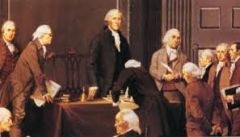
|
|
|
levy
|
impose or raise a tax
|
|
|
|
Founders (or Framers)
|
people who helped create the U.S. Constitution
|
|
|
|
Virginia Plan
|
proposal for a two-house legistlature with representation according to each state's population and waelth
|
|
|
|
New Jersey Plan
|
proposal for a legislature in whcih each state would have one vote
|
|
|
|
Great Compromise
|
agreement to establish a two representation national legistature, with all states having eqaul representaion in one house and each state having representation based on its population in the other house.
|
|
|
|
Three-Fifths Compromise
|
agreement tat three-fifths of a state's slave population would be counted for representation and taxation |
|
|
|
Executive Branch
|
governent depetant that enforces law |
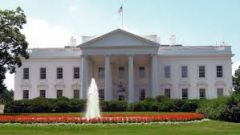
|
|
|
Judicial Branch
|
govenment department that interprets laws
|
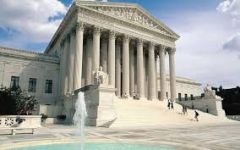
|
|
|
Legislative Branch |
government department that makes laws |
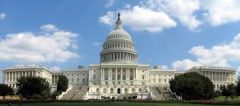
|
|
|
Checks & Balances |
the ability of a each branch of government to exercise checks, or controls, over the other branches |
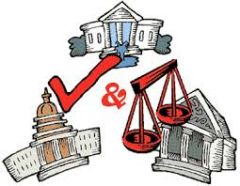
|
|
|
Antifederalists |
a diverse coalition of people who opposed ratification of the Constitution. |
|
|
|
Federalists |
The supporters of the proposed Constitution
|
|
|
|
Federalism |
System of Governement in which power is shared between the national governemnt and the states |
|
|
|
majority rule |
the principle that the greater number should exercise greater power. |

|
|
|
amendment |
a change or addition to a legal or statutory document
|
|
|
|
Bill of Rights
|
the first ten amendments to the US Constitution, ratified in 1791 and guaranteeing such rights as the freedoms of speech, assembly, and worship. |
|
|
|
House of Representatives
|
The lower house of the United States Congress. |
|
|
|
Senate
|
he smaller upper assembly in the US Congress, most US states, France, and other countries. |
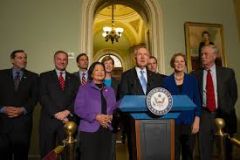
|
|
|
Congress |
the national legislative body of a country.
|
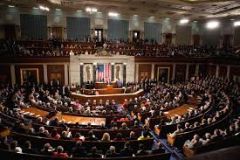
|
|
|
Popular Sovereignty |
The people is the principle that the authority of the government is created and sustained by the consent of its people, through their elected representatives |

|
|
|
Republicanism |
ideology of governing a society or state as a republic where the head of state is a representative of the people who hold popular sovereignty rather than the people being subjects of the head of state. |
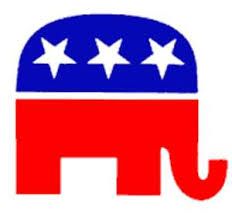
|
|
|
separation of powers |
an act of vesting the legislative, executive, and judicial powers of government in separate bodies. |
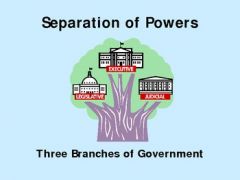
|
|
|
limited government |
A political system in which legalized force is restricted through delegated and enumerated powers |
|
|
|
bicameralism |
an essential and defining feature of the classical notion of mixed government. |

|
|
|
judicial review |
review by the US Supreme Court of the constitutional validity of a legislative act
|

|
|
|
impeachment
|
a formal process in which an official is accused of unlawful activity, the outcome of which, depending on the country, may include the removal of that official from office as well as criminal or civil punishment
|
|
|
|
quorum
|
e minimum number of members of an assembly or society that must be present at any of its meetings to make the proceedings of that meeting valid
|
|
|
|
revenue
|
a state's annual income from which public expenses are met
|
|
|
|
veto
|
a constitutional right to reject a decision or proposal made by a law-making body
|
|
|
|
naturalization
|
legal act or process by which a non-citizen in a country may acquire citizenship or nationality of that country.
|
|
|
|
elastic clause
|
a statement in the U.S. Constitution granting Congress the power to pass all laws necessary and proper for carrying out the enumerated list of powers.
|
|
|
|
natural born citizen
|
Status as a natural-born citizen of the United States is one of the eligibility requirements established in the United States Constitution for election to the office of President or Vice President.
|
|
|
|
electoral college
|
a body of people representing the states of the US, who formally cast votes for the election of the president and vice president
|
|
|
|
Supreme Court
|
the highest federal court in the US, consisting of nine justices and taking judicial precedence over all other courts in the nation.
|
|
|
|
suffrage
|
the right to vote in political elections
|
|
|
|
due process of law
|
fair treatment through the normal judicial system, especially as a citizen's entitlement. |
|
|
|
bail
|
the temporary release of an accused person awaiting trial, sometimes on condition that a sum of money be lodged to guarantee their appearance in court |
|
|
|
Constitution |
a body of fundamental principles or established precedents according to which a state or other organization is acknowledged to be governed
|
|

